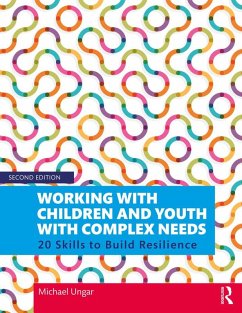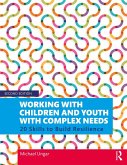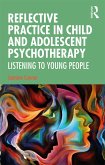Dieser Download kann aus rechtlichen Gründen nur mit Rechnungsadresse in A, B, BG, CY, CZ, D, DK, EW, E, FIN, F, GR, HR, H, IRL, I, LT, L, LR, M, NL, PL, P, R, S, SLO, SK ausgeliefert werden.
Hinweis: Dieser Artikel kann nur an eine deutsche Lieferadresse ausgeliefert werden.
"If you feel like the problems your clients encounter are too big and the helping systems in which you work are too small, read this book! Michael Ungar offers specific suggestions for an ecological practice that moves from helping individuals cope to changing the problematic contexts in which they live. Accessible, lively, and filled with great stories, this book highlights concrete ways to improve people's lives and transform the work done by mental health and social service professionals." - William Madsen, PhD, director of the Family-Centered Services Project in Watertown, Massachusetts, USA
"This important book responds to the harsh reality that many children and young people's lives are problematically complex, chaotic, and messy. Through many real-life scenarios and case studies, the reader is carefully and concretely walked through the strategies required to help improve the lives of at-risk children and youth. Dr. Ungar's social ecological approach expertly attends to both external and internal worlds so that at-risk children and young people can better navigate and negotiate the complex world they inhabit. Running through all of this is a positive, hopeful and respectful orientation towards all children and young people, whatever their state and their circumstances. I commend this work to anyone seeking to authentically and comprehensively tackle the very real complexities our children and young people experience in their daily lives." - Andrew Martin, PhD, professor of educational psychology at the University of New South Wales, Australia









